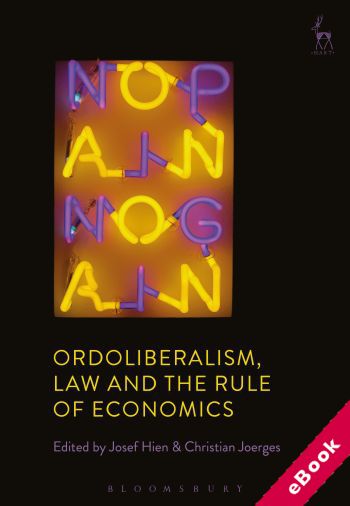
The device(s) you use to access the eBook content must be authorized with an Adobe ID before you download the product otherwise it will fail to register correctly.
For further information see https://www.wildy.com/ebook-formats
Once the order is confirmed an automated e-mail will be sent to you to allow you to download the eBook.
All eBooks are supplied firm sale and cannot be returned. If you believe there is a fault with your eBook then contact us on ebooks@wildy.com and we will help in resolving the issue. This does not affect your statutory rights.
Ordoliberalism is a theoretical and cultural tradition of significant societal and political impact in post-war Germany. For a long time the theory was only known outside Germany by a handful of experts, but ordoliberalism has now moved centre stage after the advent of the financial crisis, and has become widely perceived as the ideational source of Germany's crisis politics.
In this collection, the contributors engage in a multi-faceted exploration of the conceptual history of ordoliberalism, the premises of its founding fathers in law and economics, its religious underpinnings, the debates over its theoretical assumptions and political commitments, and its formative vision of societal ordering based upon a synthesis of economic theories and legal concepts.
The renewal of that vision through the ordoliberal conceptualisation of the European integration project, and now the challenges of the European crisis, are a common concern of all these endeavours. So are the divergent perceptions of ordoliberalism within Germany and by its neighbours in the North and the South of the EU. They unfold interdisciplinary affinities and misunderstandings, cultural predispositions and prejudices, political preferences and cleavages.
By examining European traditions through the lens of ordoliberalism the book illustrates the diversity of European economic cultures, and the difficulty of transnational political exchanges, in a time of European crisis.